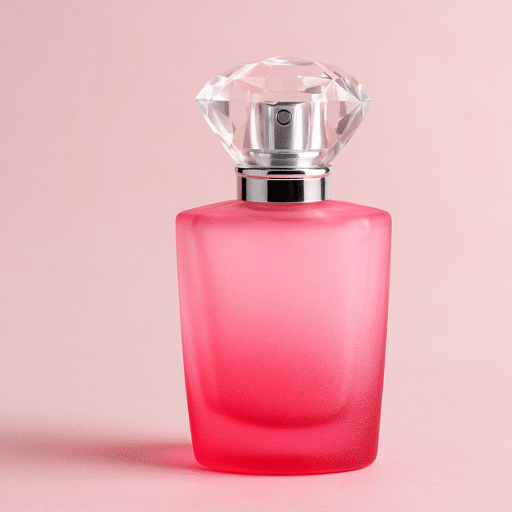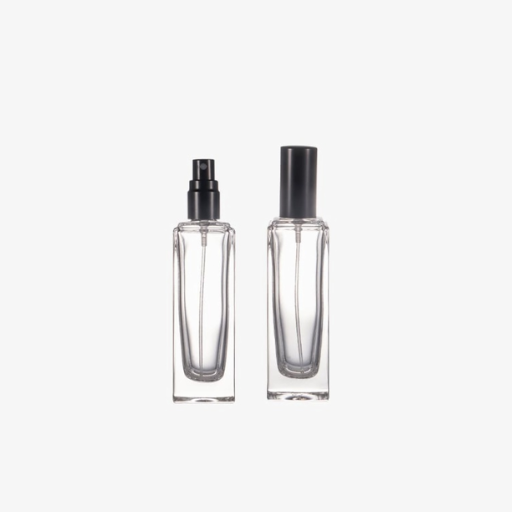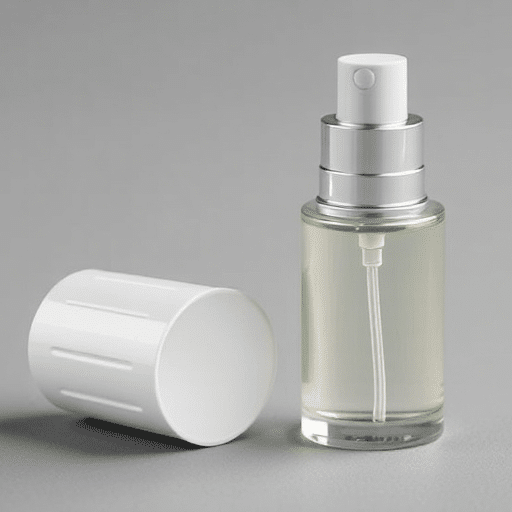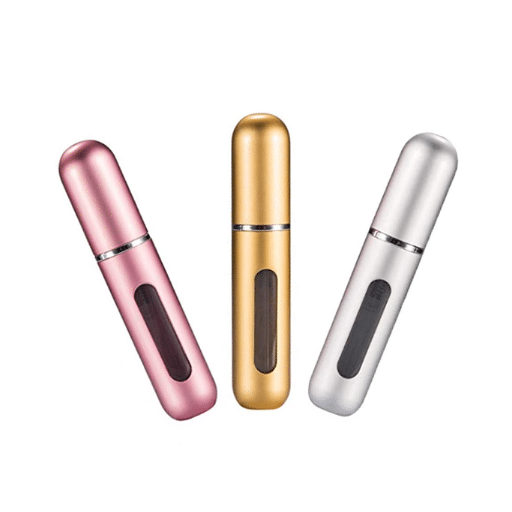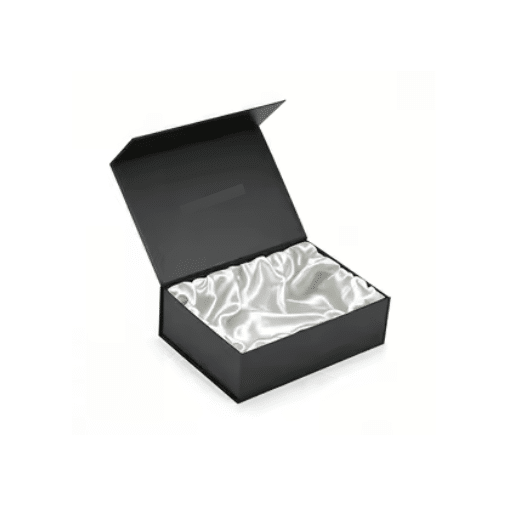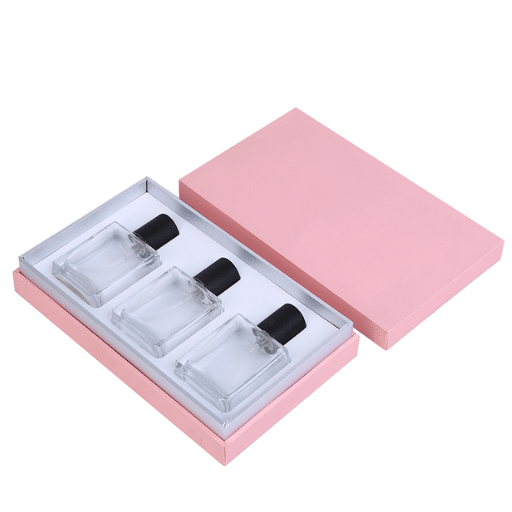Selecting the right perfume and how you apply it matters equally. For some people, achieving lingering fragrance can be a struggle due to their perfume fading too quickly, but what if impressionable tips are available to guarantee that your signature scent stays with you? In this guide, expert advice and tricks on how to spray perfume efficiently so you can enjoy its magic from morning till night will be provided. Stay tuned to learn practical tips on taking your fragrance to the next level.
Why Doesn’t My Perfume Last Long on My Skin?
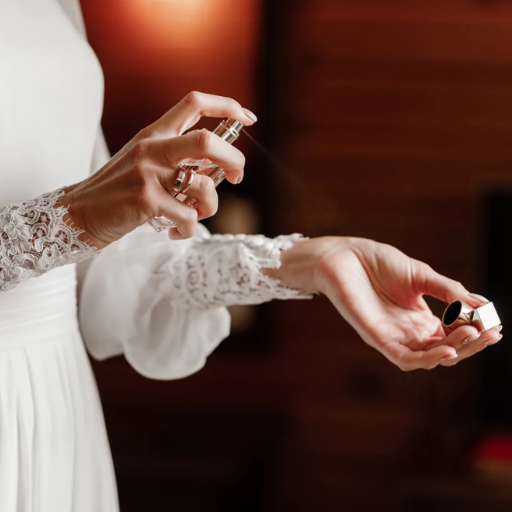
Among the reasons, perfume not lasting long on the skin can result from using old or poor quality perfume. Another cause can be skin type. Dry skin can make it difficult to hold scent as there is a lack of natural oils, while self-cleansing skin can alter the fragrance thereby reducing the length of the perfume wear time. Finally, environmental conditions like temperature and humidity can affect scent longevity.
Choosing perfumes with greater concentration like eau de perfume instead of eau de toilette can also ensure longer-lasting wear.
How Body Chemistry Affects Fragrance Longevity
Body chemistry is one of the most critical factors in how an individual’s fragrance evolves and how long it lasts. His or her skin pH level and natural skin oil are two primary constituents of body chemistry. Skin that is more acidic (lower pH) may speed up the breakdown of fragrances while balanced or slightly alkaline skin can support a scent’s structure, thus prolonging its duration. Similarly, the quantity of natural oil on a person’s skin can also affect how long a fragrance will last. Oily skin tends to hold onto fragrances better (thus, making them last longer) compared to dry skin which can cause perfumes to dissipate more quickly.
Moreover, some studies suggest that a person’s nutrition and of eating and drinking as well as body chemistry, modify how a fragrance works. For instance, a diet heavy in spicy and protein-rich foods may heighten sharp notes in a fragrance, whereas a diet rich in fruits and vegetables might emphasize light and fresh tones. Scientific research has also pointed out that hydration levels impact matters—well-hydrated skin retains scent better than dry skin, enhancing the need for moisturization when applying perfumes.
At the end of the day, no two individuals have the same body chemistry, and therefore, the same fragrance can smell and perform differently depending on who wears it. Trying out different application techniques and picking fragrances that match your skin type can help improve scent and longevity.
Common Mistakes That Make Your Perfume Fade Quickly
1. Applying Perfume to Dry Skin
Moisturized skin allows the fragrance to interact better. When perfume is sprayed on dry skin, its longevity may be weak, because it evaporates quicker in dry areas. According to the experts, applying scentless lotion, or body oil on your pulse points before spraying perfume can enhance keeping the scent by 30% on average.
2. Rubbing Wrists Together After Application
A very common issue is the rubbing of wrists together after spraying perfume. Applying pressure like this creates heat and therefore the top notes of the perfume may evaporate too quickly which for complicated fragrances can lead to loss of depth. In this case, you should let the perfume dry off your skin without any rubbing for the best results.
3. Storing Perfume Improperly
To some extent, sunlight and extreme temperature ranges will speed up the degradation of perfume, making it fade faster. There is a bit of an estimate that perfume kept away from direct sunlight or heat lasts considerably longer. One of the best thermometer range is around 55°F to 72°F.
4. Application Areas That Are Incorrectly Used
Areas where skin meets clothing, such as the neckline and wrists, experience rubbing that can lead to a quick dissipating scent. Opt for areas like behind the ears, inner elbows, or back of the knees where the pulse points allow heat to emit and sustain fragrance release during the day.
5. Body Products Overly Rich in Alcohol
Lotions and deodorants containing alcohol tend to disrupt perfume, often causing it to fade more quickly. Transitioning to fragrance-free skin care products will allow the wearer to enjoy the original scent profile of perfume for longer.
Correcting mistakes tailored to best practices outlined in this guide aids perfume applications, allowing users to achieve a scent profile that remains rich throughout the day.
Understanding Different Perfume Concentrations and Lasting Power
The strength of a fragrance and its longevity on the skin depends on the perfume concentrations. Parfum, Eau de Parfum (EDP), and Eau de Toilette (EDT) are the three primary classifications based on the ratio and volume of oil and perfume, and the longevity of the fragrance.
1. Parfum (Extrait de Parfum):
With a concentration of fragrance oils ranging from 20-30% volume, Parfum now has the most intense lingering scent with a staying power ranging from 8- 12 hours. Due to the intensity of the scent, a smaller amount of perfume is required. It is the most expensive statement perfume.
2. Eau de Parfum (EDP):
With a concentration of fragrance oils ranging from 15-20%, Eau De Parfum excels in lasting power sustaining 6-8 hours. With its substantial affordability and smooth balance in strength and balance. EDP is a known type of fragrance that is suitable for both day and night.
3. Eau de Toilette (EDT):
This is the lighter variant with fragrance oils ranging from 5-15% concentration. As a result, Eau De Toilete is more refreshing than EDP but has a shorter staying power of 4-6 hours. Commonly, it is used in a casual setting or during the day.
4. Eau de Cologne (EDC):
Eaux de cologne typically contains 2%-5% fragrance oils. Due to its light formulation, it has a duration of around 2-3 hours. EDC works well for summer days and requires little effort to apply.
5. Eau Fraîche:
With 1% to 3% fragrance oils, this is considered the most diluted form of a fragrance, Fraiche has an even lighter and shorter-lasting scent than EDC, usually persisting for about 1-2 hours. This is suitable for users looking for light nuances.
The concentration is not the only factor to look into – application method, temperature, and skin type matter also. For instance, applying perfume on moisturized skin enhances the projection and longevity.
Acquaintance with these concentrations paired with proper application techniques allows users to acquire the desired effect and duration.
What’s the Best Way to Apply Perfume for Maximum Longevity?
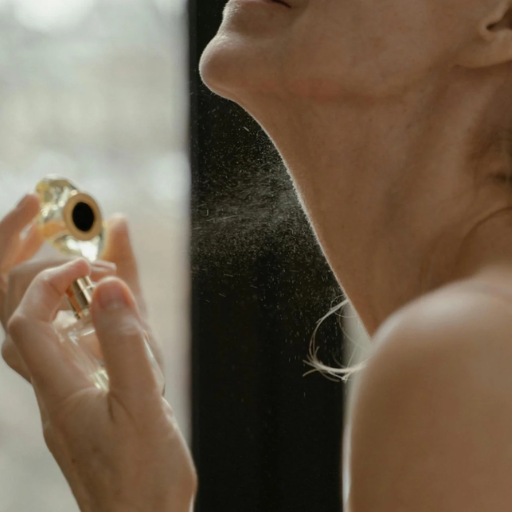
To achieve the most out of using perfume, follow these guidelines:
Apply to Moisturized Skin – Spread an unscented lotion on the skin before applying perfume as moisturized skin hydrates skin better helps release perfume.
Ideal Region – Apply perfume on areas with high temperatures for the wrists, neck, behind the ears, and inner elbows since the warmth will help release fragrance as time passes.
Dab, Do Not Rub – When applying perfume, lightly dab instead of rubbing into the skin as rubbing can damage the scent molecules quickly leading to a candle-like scent being emitted.
Enhance from Within – Use the fragrance’s body lotion or body wash-like fragrance to increase the period the scent lasts for.
Storage Guidance – Perfume ought to be kept in cool dark regions such as cupboards away from light, heat, and sunlight as they will weaken the scent.
Using the above guidelines ensures you get the desired result of the parfum being used for longer.
The Strategic Pulse Points Method for Long-Lasting Scent
Applying fragrance on pulse points is an effective method for optimizing wear time and intensity. Heat assists in activating and diffusing your perfume, which allows it to linger for an even longer period. Critical pulse points are the wrists, behind the ears, the base of the throat, inner elbows, and behind the knees.
Studies indicate that the molecular structure fragrance takes for certain skin temperatures and textures is different at these strategic places. For instance, perfume placed on the inner elbows and behind the knees would have a more subdued release because there is less aeration, great for extending the length of diffusion. To further amplify this effect, ensure skin is well hydrated prior to application because moisturized skin holds on to fragrance making the scent richer and longer lasting.
Make sure to apply perfume on pulse points and avoid rubbing it in as it can break down its composition and alter the scent. Coupled with intelligent storage, proper layering techniques, and these strategies, ensure optimal fragrance performance throughout the day.
Layering Techniques to Make Your Fragrance Last All Day
To ensure my fragrance lasts the entire day, I start applying it over matching products like body washes, lotions, or oils. This creates a base that increases the longevity of the perfume. Then, I place the perfume on areas that I can feel my pulse, for example, my wrists and behind the ears because the warmth helps in projecting the scent. I also sprinkle some on my hair or clothes to give an extra boost of scent. Using all the methods combined, I strive to keep my scent fresh and smellable for the entire day.
How to Properly Spray Without Overwhelming or Wasting Product
In my case, to avoid going overboard and wasting perfume while spraying, I take the approach of “Less is More”. To avoid going overboard, I suggest starting one to two arm choices close to the edges of the shirt/dress. Each hold should be done between 6-8 inches away starting from neck and wrists, oft question. The magic number of one or two spritzes around area is the goal. Avoid interactions with skin as it can be detrimental to a fragrance being retained. Also, I try not to overindulge in these scents to truly enjoy perfume instead of massively applying which would ruin it.
Which Type of Perfume Lasts the Longest?
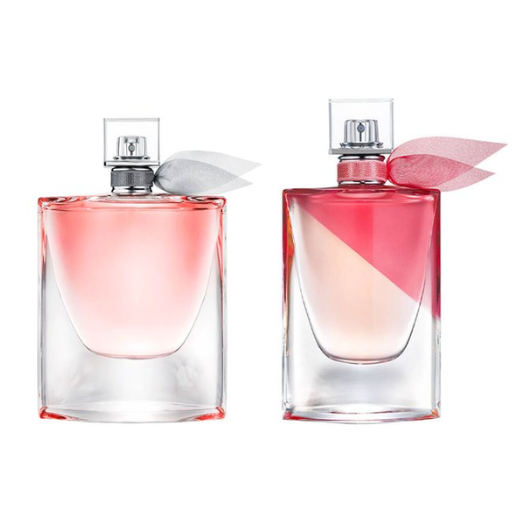
The type of perfume that lasts the longest are those with greater ado of essential oils. An example is parfum (or Extrait de Parfum) which has the greatest oil content, generally ranging from 20-30%. As a result, perfume lasts 8-12 hours on the skin. Following itil, eau de parfum (EDP) has slightly lower concentration (approximately 15-20%) and lasts 6-8 hours. Choose parfum or ace de perfume for the longest-lasting scent.
Perfume Oils and Their Lasting Power on Skin
Perfumes do not work the same way for everyone. Perfume longevity depends on skin type. For example, an individual with oily skin will retain fragrance longer than someone with dry skin. Also, the scented oils used will not ‘stick’ to an oily surface due to the moisture. This means a person with dry skin will absorb perfume faster than an oily-skinned counterpart and thus, will be scentless faster. However, dry skin can be treated for better retention. A plain fragrance-free lotion can be used to spray perfume over, essentially allowing the base to be present for long-lasting results.
Fragrance loses its scent with time. However, using pulse points works wonders. Applying perfume on these areas can help retain fragrance better. Body heat-intensifying perfume means it is essential to pulse fragrances onto pulse points for semi-long-lasting results. These locations include the wrist, neck, or even behind the ears. For the best results spray perfume without rubbing the wrists together mouth of the bottle and pulse points. This prevents counterintuitive actions that cause scent to be obliterated.
Humidity comes into play in between spring and summer as shortcomings in moisture lead to higher evaporation. This proves beneficial to those trying to retain invaluable time. During winter days, scent retention is even better. Pristine conditions assist in ‘lock in’ ability.’
Finally, some details in the specific perfume notes also matter. Base notes like amber, vanilla, musk, and wood linger for a longer time than lighter top notes like citrus or florals. Choosing a perfume rich in these base notes can improve the experience of the fragrance and its longevity.
Scent Families That Naturally Last Longer
Due to the density of specific notes in certain fragrance families, some are particularly known for their longevity, as well as how they interact with the skin over time. Take Oriental fragrances for instance. They are celebrated for their warm and richly deep character which often contains components such as amber, resins, and spices that help anchor the scent for longer periods. Similarly, Woody fragrances which are dominated by notes such as sandalwood, cedar, and patchouli also tend to cling to the skin and gradually release their fragrance making them ideal for sustained use.
Chypre fragrances which combine citrus top notes with moss and woods at their base are another excellent example. Their earthy sophisticated nature is enduring as well as distinct. Also, Leather fragrances with their smoky, woody, sweet undertones extend their presence for hours creating bold and persistent impacts.
Base heavy scent families are slower to evaporate due to heavier molecular structures ensuring longer-lasting fragrances. When selecting perfumes from these families make sure they are high-concentration formulations like parfum or eau de parfum since perfumes within these families tend to require these formulations for maximum longevity. This combination of family and formulation provides a truly remarkable olfactory experience.
Are There Special Tips for Making Fragrance Last in Different Seasons?
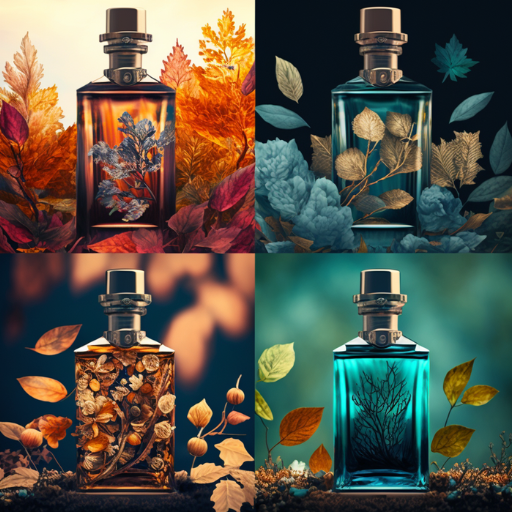
Yes, changing a fragrance routine based on the seasons does help make the scent last longer:
Summer: Focus on applying fragrance to pulse points and use it very lightly, as heat amplifies scent. Reach for lighter, citrusy scents that work better in hotter weather and think about layering with unscented moisturizers to help retain the scent longer.
Winter: Spicy, heavier and woody scents work best during the colder months. Apply to well-moisturized skin as dryness reduces a fragrance’s longevity. Concentrate application on areas that are covered with clothing to help retain the scent.
Spring and Fall: These transitional seasons are best for versatile fragrances with notes that are floral fresh or warm. Modify how much is applied based on the temperature during the day.
Year-round fragrance enjoyment is possible by tailoring the fragrance type and application to the season to achieve optimal performance.
Summer Strategies for Heat-Resistant Fragrance Application
During the hot summer months, the high temperature and humidity can affect the development and duration of fragrances on the skin. To guarantee the most effective results, use the following tips:
1. Choose Fragrances Suitable for the Summer
Fresh and crisp fragrances containing citrus, aquatic or green notes should be selected as their chances of feeling overpowering in the heat are minimal. These scents are likely to evaporate more cleanly, making for a refreshing feel throughout the day which is ideal for summer.
2. Layer Your Fragrance
Adding fragrance sticks, scented body lotion, scented body oils, or scented shower gels can anchor the scent as they use compatible fragrance orders. Both warm and cold weather are prone to perfume molecules, but when framed under heat they tend to bind better when layered.
3. Apply Strategically
Avoid areas that are heavily exposed to sunlight, like the back of the ear’s pulse point, the collarbone, and the inner wrist. Minor sunlight exposure will not cause any skin problems but will change the result of the scent.
4. Storage Tips
Do not store shower gels or body lotion under direct sunlight as the need to decipher scents causes harm to the chemical level. Heat will unbalance perfumes and scented lotions, tremenorrally, causing damaged scents over particles of time.
5. Reapply as Needed
These tricks will give a fresh and timeless spritz feeling anytime during sweltering summer days. Sweat and losing water have major connections, the more a person perspires in summer the quicker scents will wear off. It is advised to always carry portable atomizers and travel-sized bottles.
Performed with care, the tips listed above can tail the experience add-up to scented showers and enduring terms and conditions for wearing fragrances.
Winter Application Methods for Longer-Lasting Perfume
Cold indoor temperatures and winter winds can deplete moisture from the skin, causing the fragrance to dissipate quickly. However, to make sure your scent lasts during winter festivities, follow these simple guidelines:
1. Layer Your Fragrance
Moisturizing the skin helps to retain perfume; therefore, precision should be placed in the order of application. First, apply unscented moisturizer or matching scented lotion, if available. It is best to use matching body lotion and shower gel to amplify the effect. The dermatologist-scientist-based study states that drinking plenty of water enhances the longevity of fragrance by more than 50% on hydrated skin. Moreover, complementary scented products form the base on which to apply perfume.
2. Target Pulse Points and Clothing
To amplify scent, apply perfume on warm areas of the body such as the neck, wrists, and under the ears, as well as the cubital fossa. Body’s warmth acts as an amplifier. Scarf or knitwear can also be sprayed lightly as the fabric holds scent exceptionally well. According to the report, fragrances on fabrics last longer than naked skin, sustaining 8–12 hours longer.
3. Go with Stronger Versions
During wintertime, it is ideal to use more concentrated types of fragrances such as perfumes or Eau de pars because of its higher oil content perfume is more resilient against cold weather. Studies indicate that eau de parfum usually lasts for 6-8 hours, while lighter versions such as eau de toilette rings are likely to fade after 3-4 hours.
4. Store Perfumes Correctly
Proper storage such as keeping away from direct heat, strong lights, or places with changing temperatures, are crucial to keeping your fragrance in good shape. Additionally, keeping perfumes in a constant, cool environment can extend their longevity. If stored properly, perfumes can last and maintain their potency for five years or more.
By following the scientifically proven steps and tailored strategies, these tips will help you use scented fragrances all day long, regardless of how cold the weather gets.
Humidity and Its Effect on Your Signature Scent
Moreover, the perfume and fragrance world closely studies how scents work. For moisture, especially with water vapor in mid-high levels of pollution or congested air, fuge or fragrance is amplified by the humid levels as a protective measure to a degree. Evaporation is delayed, enabling lighter portions of the sense and fragrance to endure longer on places where impacts are felt. Notably, extremes of humidity rising too high or too low depending on the environmental temperature can lead perfume to become overwhelming, especially with scents rich amber, musk, or similar items as a fill or breeze goodbye base note.
Spells of extreme cold, especially on unclouded days, in the case of lower humidity perfumes, are dealt with brief lifespans and become devoid of higher abilities like performance or diffusion… coupled with diminished overall intensity. Low water vapor environments can also release scent high dry top notes briskly from within the fragrance.
Studies indicate that fragrances perform best when applied to well-moisturized skin in environments with a relative humidity moderately ranging from 40 to 60 percent. This range best suits evaporation and ensures that the fragrance morphs in complexity–fully developing and remaining neither too strong nor too subtle. When adapting to different levels of humidity, consider using lighter, fresher scents in humid climates and warmer, spicier fragrances when it’s drier. Additionally, using fragrance oils and layering complimenting moisturizer scents with the perfume will help hold the fragrance’s intensity and lasting power regardless of climate.
What Products Help Make Perfume Last Longer on Your Skin?
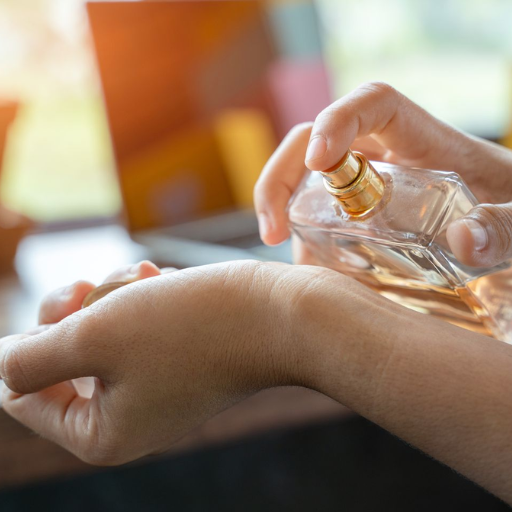
What Products Make Perfume Last Longer on Your Skin:
- Moisturisers: unscented or lightly scented lotion is perfume-friendly and keeps hydrated skin for extended periods which makes holding fragrance better.
- Vaseline: applying fragrance-free vaseline upon pulse points makes it easier for scents to stick.
- Colourless Fragrance Oils: these types of oils do make the fragrance more intense but usually at the cost of longevity.
- Perfume Primers: these kinds of products usually enhance staying power and are intended for layering.
Adopting those products will keep the perfume lasting longer while maintaining fragrance throughout the day.
Unscented Moisturizers and Their Role in Scent Longevity
Moisturizers without scent are essential for making scents last longer since they offer a well-hydrated surface for the fragrance to stick to. On moisturized skin, perfumes tend to last longer because if the skin is dry, perfumes will evaporate more quickly. Unscented moisturizers are the best because their lack of scent does not clash with any of the fragrance notes, letting the perfume speak for itself and shine without distortion.
Research indicates that hydrated skin retains fragrance molecules more effectively; hence, the projection and intensity of perfume will be stronger. For best results, use an unscented moisturizer –preferably thicker ones like creams or body butters– immediately after showering, as the water helps the skin absorb the moisturizer. The sheer butter, glycerin, and hyaluronic acid in the moisturizer further increase hydration and make it easier to lock in the scent, Incorporating this into your routine can greatly improve your perfume experience by making it more potent and vibrant throughout the day.
Matching Body Products to Enhance Your Favorite Perfume
To augment your fragrance strategy, pairing your preferred perfume with matching body products, such as lotions, shower gels, or body oils from the same line, can deepen its scent and endurance. Studies indicate that the fragrance combination done with appropriate products achieves a more uniform scent profile by emphasizing the key components of the perfume, and interlacing them with lotion or shower gel. For instance, the scent-activating power of a signature perfume can endure about thirty percent longer when complemented by other products.
Numerous luxury and niche perfume companies provide full range of other products to complement their fragrances. For example, the floral bouquet perfume enhanced with a body lotion of the same notes – rose or jasmine – will add depth to the floral composition while preserving its integrity. In addition, for deeply fragranced shower gels or body scrubs, performing these steps earlier in the day ensures the scent has a robust base to hold on to throughout the day.
The types of brands that eco-conscious consumers gravitate towards now create Cruelty-free and natural fragrant body products that celebrate green living, all while providing impressive layering effects. In the end, incorporating these products into your regimen elevates your fragrance experience and ensures a lavish, long-lasting scent that follows you throughout your day.
How Should I Store My Perfume to Maintain Its Lasting Power?
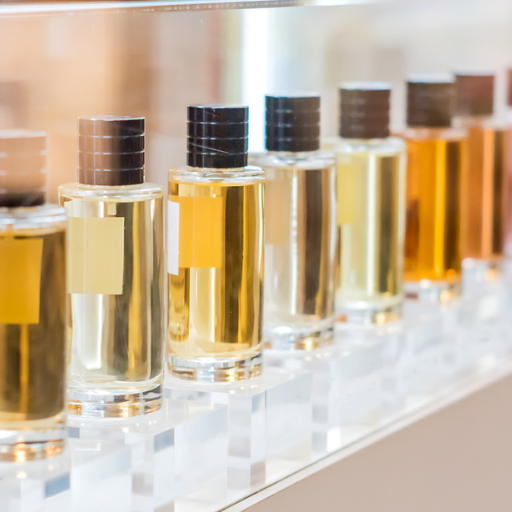
To maintain the quality and durability of your perfume, store it in a cool, dry area away from direct light and heat. An excess of both light and heat can damage the fragrance molecules which would change the scent. While not in use, keep the bottle tightly shut to prevent air exposure which can lead to oxidation and weaken the perfume. Do not keep your perfume in humid locations like the bathroom, as moisture negatively impacts its formulation. Drawers, or closets, provide a stable environment and are ideal for preserving long-lasting perfumes.
Temperature and Light Considerations for Perfume Storage
Temperature and light have a direct relation to the stability of a perfume’s composition; the two should not be variable. Perfumes must be kept in a stable temperature environment; either hot or cold temperatures can disrupt the delicate balance of the ingredients. Research indicates that keeping perfumes in areas over 77°F (25°C) roughly increases the rate of damage done and will change the perfume’s odor. On the other end of the spectrum, too cold of conditions may cause certain components to condense and crystallize, thus negatively changing the fragrance.
Both natural and artificial lighting may damage the items equally. Light, especially UV, can cause many chemical reactions to occur in the perfume, therefore weakening and aging the perfume faster. Experts say that perfumes left in sunlight lose their strength much more quickly than those stored in shade or dark. To prevent this problem, it is recommended to keep your perfume in a drawer, or other cool, dark locations away from windows and heat sources like radiators. Opaque and tinted bottles offer additional protection against light, allowing the fragrance to age without destabilizing for a longer duration. Such measures significantly help your perfume maintain its true essence for a longer period of time.
Signs Your Perfume Has Deteriorated and Lost Potency
Familiarity with the signs of perfume degradation helps to make sure you are using a fragrance that is in good condition. A perfume will definitely show some signs of change before it completely goes bad. One of the main indications is a change in the scent profile. Perfumes can also lose potency if their fragrances smell rancid, acidic, or completely different from what it is supposed to smell like. A color change is often the most noticeable sign; the perfume liquid might darken or become cloudy. Furthermore, if you notice crystals forming at the bottom of the bottle, it could signal a breakdown of the perfume at a molecular level.
Every perfume has a shelf life which in most cases lasts three to five years. Studies also show that if stored in the wrong conditions, the shelf life can be greatly reduced. Exposure to light and changes in temperature can speed up the rate of oxidation. This, in return, breaks down the perfume’s essential oils and the alcohol base. Highly concentrated perfumes are not safe either; the higher the concentration of natural ingredients in fragrance, the faster the perfume will become unusable.
To see if your perfume is still viable, consider spraying it onto a test strip or piece of fabric and letting it dry for a few minutes. If the scent dissipates far too quickly or leaves behind an odor, this a negative sign. Keeping an eye on wear and tear allows you to manage your collection better, replacing bottles that have gone through the decline with new ones as needed.
Reference Sources
I found some studies related to perfume application and longevity, but none specifically address how to spray perfume to make it last longer. Here are the highlights:
-
Revolutionizing perfume creation: PTD’s innovative approach:
- Introduces a data-driven method for optimizing perfume formulations.
- Focuses on the creation and optimization of fragrance mixtures rather than application techniques.
-
Fragrance technology for the dermatologist–a review and practical application:
- Reviews the science behind fragrance and its practical applications.
- Discusses the composition of perfumes and their interaction with the skin, which could indirectly relate to longevity.
-
Scentfashion®: Microencapsulated perfumes for textile application:
- Explores the use of microencapsulation technology for applying perfumes to textiles.
- Focuses on extending fragrance longevity on fabrics rather than skin.
If you’d like, I can refine the search further or explore specific aspects of perfume application techniques. Let me know!
Frequently Asked Questions (FAQs)
Q: How can I make my perfume last longer on the skin?
A: To make your perfume last longer on the skin, apply it on moisturized skin, as hydrated skin can better retain the scent.
Q: What are the best ways to make my perfume last all day?
A: The best ways to make your perfume last all day include applying it after a shower, on pulse points, and avoiding rubbing your wrists together.
Q: How do I apply my perfume to make it last longer?
A: Apply your perfume to pulse points like the neck, wrists, and behind the ears, as these areas emit heat and help diffuse the scent.
Q: Should I spray perfume onto my clothes or skin to make it last longer?
A: While spraying perfume onto your clothes can make the scent last longer, applying it on your skin, especially pulse points, is recommended for a true fragrance experience.
Q: Is it true that rubbing your wrists together affects the perfume’s longevity?
A: Yes, rubbing your wrists together can break down the perfume’s molecules, diminishing its lasting power. It’s better to let it dry naturally.
Q: How much perfume should I use to make it last for hours?
A: Use perfume sparingly but effectively on pulse points. Over-applying can overwhelm and won’t necessarily make it last longer.
Q: Can layering products help make my perfume last longer?
A: Yes, using scented body lotions or oils in the same fragrance line can help layer the scent, making your fragrance last longer.
Q: What are some tips on how to make my perfume last longer?
A: Tips on how to make your perfume last longer include storing it in a cool, dark place, applying it to pulse points, and moisturizing your skin before application.
Q: Why doesn’t my perfume last as long as I want it to?
A: Factors such as skin type, environment, and the concentration of the perfume can affect how long it lasts. Opt for a long-lasting perfume formulation for better results.

